The Transat: Conditions Taking a Toll
Published on May 16th, 2016
(May 16, 2016; Day 15) – The arrival of IMOCA 60 skipper Paul Meilhat (SMA) and Multi50 runner-up Lalou Roucayrol (Arkema) in New York today, brings the total number of competitors to have successfully crossed the Atlantic in The Transat bakerly to nine.
Crossing the finish line at 14:35:14 local time, Meilhat is the fourth and final IMOCA 60 skipper to reach New York, after winner Armel Le Cléac’h (Banque Populaire), runner-up Vincent Riou (PRB) and third-placed Jean-Pierre Dick (St Michel-Virbac).
Completing his first solo transatlantic race in a time of 14 days, five hours and five minutes, Meilhat sailed a total of 4,112 miles through the water, at an average speed of 12.06 knots. The voyage means he has now qualified for the 2016 Vendée Globe.
Using The Transat bakerly as a test ahead of the 24,000-mile, non-stop round-the-world race in November, The Transat bakerly is also the first race for Meilhat since he fractured his pelvis and several ribs during the Transat St Barth Port-La-Forêt in December last year.
Following that serious incident, that left the skipper hospitalised and his boat drifting in the Atlantic Ocean for several weeks, simply getting to the start line in Plymouth, and now finishing the race in New York, are major achievements for Meilhat.
“My overriding feeling right now is one of happiness and relief,” he said on the dock in New York. “Knowing that I am qualified for the Vendée Globe is a big step. The race was really intense and the end of the course was especially hard. The weather systems were very unstable.
“Getting to New York is fabulous. This morning I was still 60 miles from the finish and I saw the first building, I think it was the Freedom Tower at One World Trade Centre. To arrive and have the city in front of you is amazing. It’s incredible,” he concluded.
Just two hours after Meilhat, Roucayrol sailed his 50ft trimaram Arkema across the line to claim second place in the Multi50 class. Despite a broken daggerboard earlier in the week, that forced him to change his routing to avoid upwind work, Roucayrol put in a determined performance over the final 1,000 miles of the race.
Roucayrol’s total time was 14 days, seven hours and 13 minutes – just one day, 23 hours and 53 minutes behind class winner Gilles Lamiré (French Tech Rennes St Malo). Roucayrol sailed a total distance of 4,199 miles at an average speed of 12.23 knots.
While the latest two arrivals enjoy the thrill of docking in Manhattan, the race continues to grow in intensity for the nine competitors still out in the field. Battling against strong upwind conditions, the remaining Multi50 and Class40 skippers are desperately trying to preserve their boats over the final few hundred miles of the race.
“It’s like a rodeo on board with the choppy sea state,” said Pierre Antoine on the Multi50 Olmix who is currently in fourth place and just 35 miles behind third-placed Erik Nigon on Vers un Monde Sans Sida. “I’m into the final phase of the race, but Erik is not very far away. It promises to be a full-on battle to the end.
“The conditions on the water change really quickly, it’s unstable and not easy to get a good idea of the forecast. It’s now been two weeks at sea and I’m getting anxious to see land and the sooner the better,” Antoine added.
In the Class40 fleet, harsh Atlantic conditions are starting to take their toll on the 40ft keelboats and their gutsy skippers. As the finish line nears, the competitors are making daily repairs – no mean feat in the crashing Atlantic waves – and dreaming of a city skyline on the horizon.
“What has struck me most about this race is not so much the physical effort it requires, but the intense fear of breakages that will prevent you from finishing,” said the Région Normandie skipper Edouard Golbery. He is currently in fifth place and struggling with damage to his sails.
“I’ve had some issues with my mainsail and although it’s not been too violent on board these last few days, I know that with every wave the boat is damaged a little more. Keeping motivated has been hard, but I’m beginning the approach to the finish now, and that is great news.”
Frenchman Thibaut Vauchel-Camus on Solidaires en Peloton–Arsep still leads the Class40 fleet by over 30 miles, with British skipper Phil Sharp on Imerys in hot pursuit and Louis Duc on Carac in third.
Sharp is trying to repair a tear in his mainsail. “I was trying to relieve the pressure on the mainsail, to conserve the boat as the wind was increasing,” he explained. “Before I knew it, the sail just ripped. The damage is at the top, so I can’t reef it. If I leave it, the rip will continue down the sail, so I am going to try and repair it now, but I am worried that there isn’t enough material on board – I’ve used so much of it, repairing the other sails during the race.”
The remaining Multi50 skippers look set to finish late on Wednesday and the Class40 fleet on Thursday.
Event website – Tracker – Facebook
About The Transat
Twenty-five boats set sail May 2 2016 on one of the great races in solo sailing, the 3,050-nautical mile passage across the north Atlantic from Plymouth to New York. Alongside 24 competing skippers is a one-off entry by the French racing legend Loick Peyron who is sailing Eric Tabarly’s 44ft wooden ketch Pen Duick II in the same trim as she was when Tabarly raced her to victory in The Transat (then called the OSTAR) in 1964.
The OSTAR (Observer Singlehanded Trans-Atlantic Race) was created in 1960 by a handful of pioneering sailors. The race was organised every four years by the Royal Western Yacht Club (RWYC) from 1960 through to the 2000 event, albeit with a lot of involvement from the French event organiser Pen Duick in the 90s, in order to cater for the demands of the professional campaigns that dominated the event.
After the 2000 edition, OC Sport stepped in to develop the event and acquired the rights to the professional part. OC Sport organised The Transat in 2004 and 2008, the 2012 edition was deferred at the request of IMOCA (the largest competing class).
The RWYC continues to organise a solo transatlantic race for Corinthian and non-professional sailors that is still known as the (O)STAR,. This race usually falls a year after the professional big boat race i.e. 2005, 2009, 2013, 2017. Both the amateur Yacht Club event and The Transat have the right to link to the history of the original race created in 1960, and to the rich history it has produced.
The first race was competed by just a handful of pioneering sailors including Francis Chichester and Blondie Hasler who coined the phrase: “One man, one boat, the ocean.” There has been tragedy, dramatic rescues and exceptional drama since the race began in 1960. Over time The Transat, as it is known today, has evolved and now serves the professional end of offshore sailing. But there are few modern day races that can reflect on such a long and outstanding history.
Monohull IMOCA 60 record: 12 days, 11 hours and 45 minutes set by Loick Peyron (FRA) on board Gitana in 2008. Multihull 60ft record: 8 days, 8 hours, 29 minutes set by Michel Desjoyeaux (FRA) on board Géant in 2004.
Source: The Transat


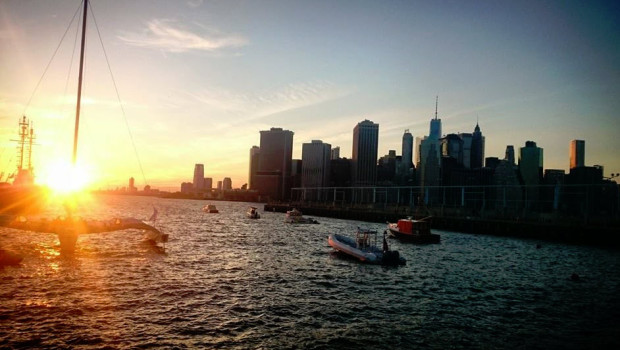

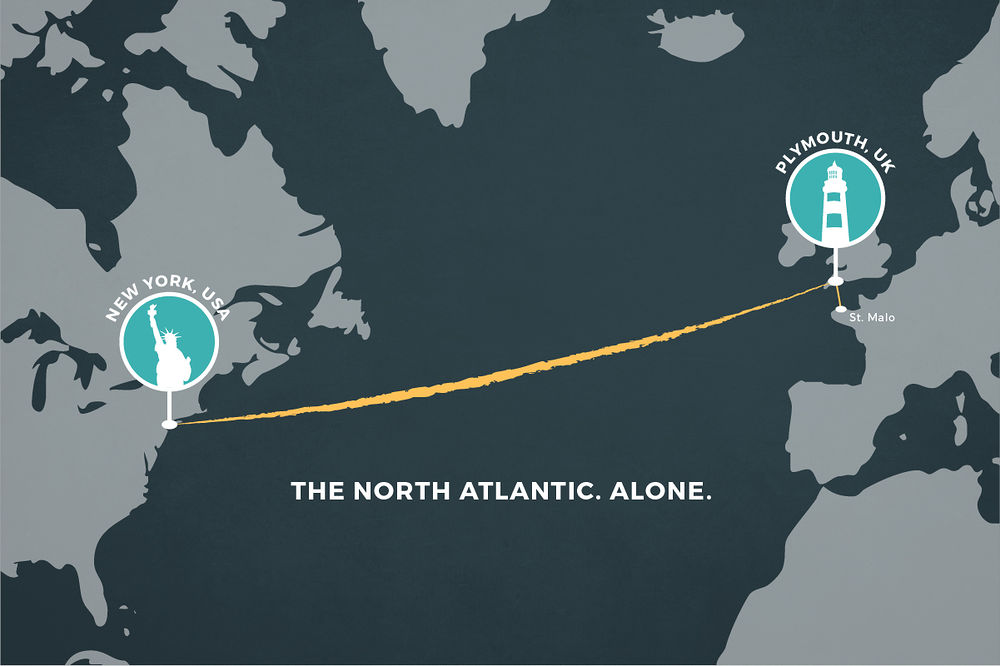

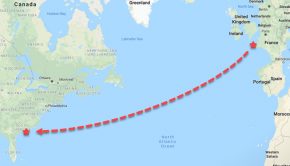
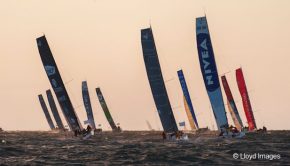
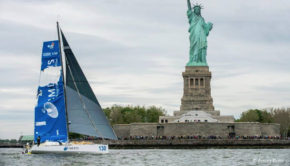
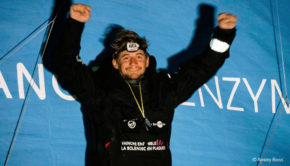
 We’ll keep your information safe.
We’ll keep your information safe.